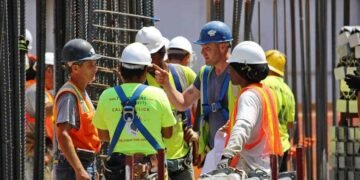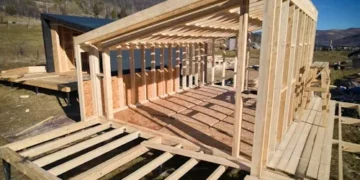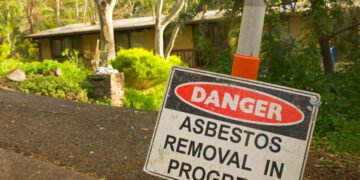The construction industry is one of the biggest in the world at the moment, which means it might be the perfect time to start a construction company. You might have the right technical skills to work on building projects, but a contractor has a lot of responsibilities. If you want to be one, you will need to be proficient in handling all of the duties that the owner and contractor would have.
One of the biggest responsibilities is managing each construction site. It’s not just a matter of feeling everyone their jobs and letting them get to it. So many things are happening on a site, and you must be on top of them. Here are the basics of construction site management so that you have a head start.
Also Check: 7 Tips For Managing a Construction Site
Have a Plan and Schedule
Every big project should start with a plan. If you’ve promised a timeframe to a client, then you need to meet your deadlines or risk not fulfilling your promises. Start with a schedule for every phase of the project and every subcontractor and employee that is involved.
For example, something may need to set or dry before further work can be continued. Some subcontractors may also have to wait for others to finish their work. Always schedule in some extra time for tasks that have some uncertainty in them and for weather that might cause delays.
Logistics On Site
There are several resources, such as materials and equipment, that will need to be on-site at all times during the project. You need to have a method to protect them from the elements and from theft or vandalism. This may require hiring a security service or locking boxes and containers for everything.
Nothing that is stored on-site, such as materials, should be blocking access points to the site or left in a place that would prevent emergency vehicles from getting in. Plan out your site so that it is as convenient as possible for everything to get what they need when they need it.
Have an Inventory
Whether it’s equipment, tools, or materials, you need to know where everything is at all times. The last thing you want is for a worker not to have the tools they need to start a task or for the necessary materials to still be in transit when everyone is ready. Don’t take a chance, track everything that comes into and out of your project site. Your schedule and plan will also tell you when you should expect deliveries, so you will know if something isn’t there on time. Trate your construction site like a warehouse and have a handle on what you have and where it is.
Waste Disposal
Never underestimate how important the removal of debris and waste is. If it’s allowed to build up, it can take up valuable space, cause delays, and even be a safety hazard. Wood and other flammable materials should be stored away from what you are building in case of fire.
You should also make it easy for your workers to dispose of things. Have receptacles spread throughout the site, and have a system for when those receptacles are removed. You can invest in equipment that makes moving and dumping easy, such as self dumping hoppers that can be attached to forklifts.
Safety
Safety should be the top priority on any construction site. Outside of something getting hurt, there are practical reasons to promote safety as well. If someone gets injured, your project will be delayed, costing you money. Also, if it’s serious, then you may have to spend time hiring a replacement, which will slow down production further. On top of that, promoting and being rigid about safety is just the right thing to do.
Nobody should be on your construction site without wearing the proper protective clothing, such as steel-toed boots and hard hats. Anyone performing any task must be fully trained in safety procedures for that specific task as well. Put up signage and do inspections to remind everyone on site how important safety is.
Quality Control
As the leader of the project, it’s your job to make sure that everyone is doing their jobs right. Along with safety inspections, you should be checking on the quality of the work being performed on-site. That means that everyone is paying attention to details and following all applicable building codes.
If something doesn’t look to be up to snuff, then it needs to be fixed immediately before the project gets too far down the road. The last thing you want is the client contacting a month after completion to complain about issues they’ve been having with their new space. The sooner you nip bad work in the bud, the better.
Regular Communication
Make sure that you are talking to everyone on your team regularly. Check in with the client, too, to tell them how things are going. The more open and up front you are with them, the more trust you can build up. The client is taking a big leap of faith by entrusting their investment to you. Likewise, your staff needs to know that you are willing to listen to their concerns and provide feedback and praise when necessary. Open communication will help everyone work better together and prevent potential issues from festering until they explode.
Never forget how much there is to do if you are a general contractor on a construction site. With so many responsibilities, it can get overwhelming. Just keep these tips in mind to make it easier for you to manage your sites and deliver excellent work for your clients.














